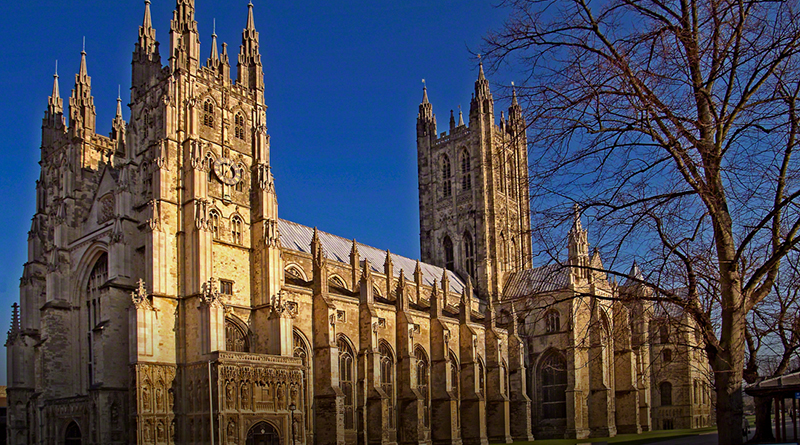Abuse uncovered in Church of England
THE CHURCH of England failed to protect children from sexual predators within its ranks for decades, allowing abusers to hide in an attempt to defend its own reputation rather than following its duty to protect young people, an inquiry said on Oct. 6th.
From the 1940s to 2018, 390 people who were clergy or in positions of trust associated with the Church have been convicted of sexual offences against children, the Independent Inquiry into Child Sexual Abuse said.
“Over many decades, the Church of England failed to protect children and young people from sexual abusers, instead facilitating a culture where perpetrators could hide and victims faced barriers to disclosure that many could not overcome,” Professor Alexis Jay, chair of the inquiry, said.
“If real and lasting changes are to be made, it’s vital that the Church improves the way it responds to allegations from victims and survivors, and provides proper support for those victims over time,” she added.
The report recommended that diocesan bishops should no longer have “operational responsibility” for investigations into abuse allegations.
The primary concern of many senior clergy was to uphold the Church’s reputation, the inquiry said. Senior clergy often declined to report allegations to the appropriate agencies and hindered criminal investigations, allowing some abusers to escape justice.
The report said that, in many cases, the Church of England failed to take the abuse allegations seriously, and that perpetrators were “given more support than victims.”
The inquiry also found examples of clergymen being ordained despite a history of child sexual offenses.
The report came after the inquiry held several public hearings in 2018 and 2019. The inquiry last year published a linked report focusing on Peter Ball, former bishop of Gloucester, who was imprisoned in 2015 after pleading guilty for sexually abusing 18 young men over three decades.
One of his victims, Neil Todd, 38, took his own life in 1992. Nothing was done about a complaint by Ball’s housekeeper to a senior bishop working with George Carey, then Archbishop of Canterbury. Carey supported Ball who sought to use his relationship with Prince Charles, heir to the British throne, to influence an investigation, the report said. Carey later expressed his regret over the case.
In a letter to the inquiry, Charles said: “It remains a source of deep personal regret that I was one of many who were deceived over a long period of time about the true nature of Mr Ball’s activities.”
The report said sometimes sexual offenses were minimized. Citing the case of the Rev’d Ian Hughes, who was convicted in 2014 of downloading 8,000 indecent images of children, the report said that Bishop Peter Foster suggested to the inquiry that Hughes had been “misled into viewing child pornography” – even though more than 800 of the images were graded at the most serious level of abuse.
After the report was released one victim of abuse told the BBC that he was raped by a clergyman in London more than 40 years ago. Once he had decided to report the assaults, he made more than 20 attempts to contact senior Church officials, but often received no reply.
Diocesan safeguarding officials (DSOs) “need sufficient authority to take action, without the approval of the diocesan bishop, in respect of key safeguarding tasks,” the report said. “DSOs – not clergy – are best placed to decide which cases to refer to the police or social services, and what action should be taken by the Church to keep children safe.”
It also recommends that the Church of England’s Clergy Discipline Measure should be revised or replaced with a new system that removes the current 12-month statute of limitations for complaints about safeguarding matters and imposes a “mandatory code of practice” for the handling of safeguarding issues.
The report stated that there is significant disagreement within the Church of England about the inviolability of the seal of the confessional, and noted that a churchwide commission charged with making recommendations about the seal’s relationship to disclosures of abuse was unable to reach consensus. The IICSA will hold three more hearings on these topics between now and the end of 2020, and a final report is expected in the spring of 2022.
The Church of England acknowledged that progress has been too slow in supporting abuse victims and survivors, and said it was “completely committed” to improving this.
“The report makes shocking reading and while apologies will never take away the effects of abuse on victims and survivors, we today want to express our shame about the events that have made those apologies necessary,” it said in a statement. “The whole Church must learn lessons from this inquiry.”
The report recommended that both the Church of England and the Church in Wales should each introduce a Church-wide policy on the funding and provision of support to victims of child sexual abuse concerning clergy. The church announced in September that it had set up a large compensation fund for survivors of past abuse by clergy.
The Archbishop of Canterbury Justin Welby told the BBC the report’s findings were “deeply shameful” and “disgraceful.” “We need to focus and put at the centre of our attention, victims and survivors.” The Church needs “a redress system in place… we must do whatever it takes…. This report is a big wake-up call.” He added: “We’ve got to do better. And I want to show that I can do better.” TAP –Reuters, AP, TLC & The BBC




